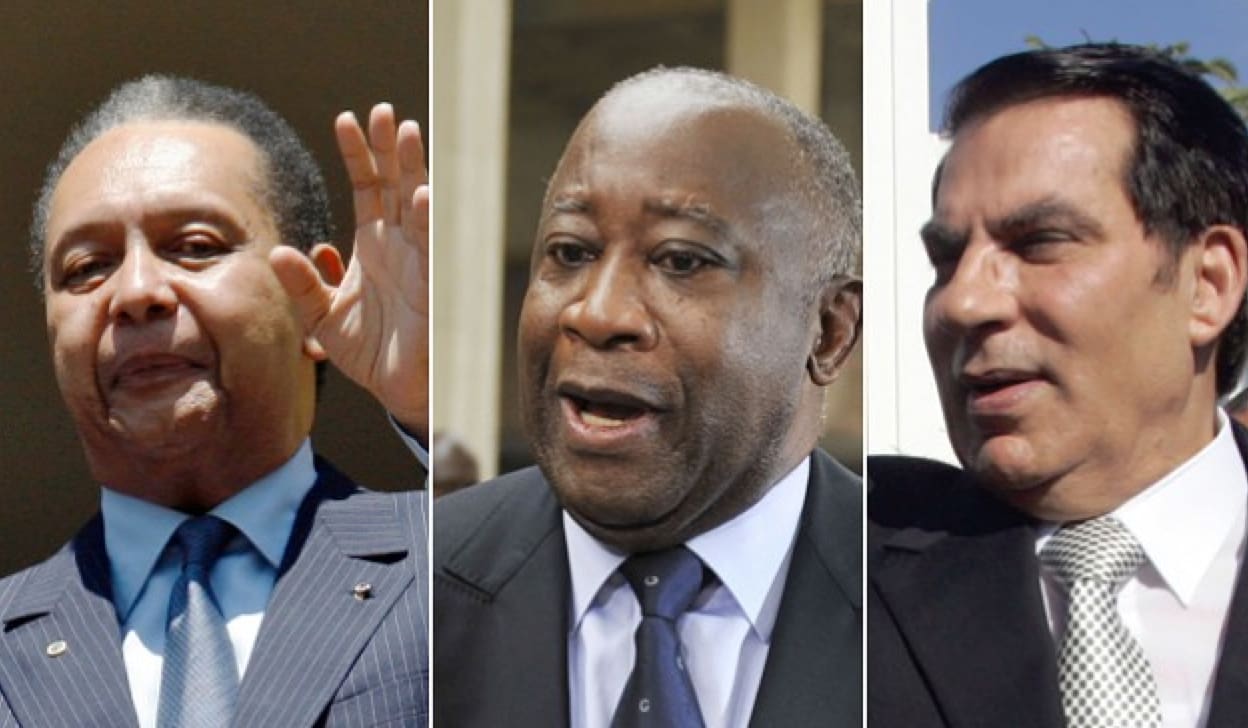Former US President George Bush had to cancel his trip to Switzerland today after human rights lawyers in Geneva announced they would submit 2,500-page complaint against Bush to a Swiss court on Monday for alleged mistreatment of suspected militants at Guantanamo Bay. Switzerland has ratified the Rome Statute of the International Criminal Court (ICC), and the Convention on Torture. Under Swiss law the courts have a form of “conditional” or “limited” universal jurisdiction which would require the that “the person suspected of the offense is in Swiss territory”.
The case against Bush is just the latest case in what has been a rough winter for former political leaders. Argentina’s Jorge Videla, considered the architect of the ‘dirty war’ waged by the country’s military that resulted in thousands of people being killed or disappeared, was sentenced to life in prison (for the torture and murder of 31 prisoners in 1976). Tunisia’s President Ben Ali fled the country during the democratic revolution there in January and the country promptly issued international arrest warrants in the form of an Interpol “Red Notice” which requires Interpol’s188 member countries to assist in the capture of Ben Ali and his relatives, if located within their borders. Jean Claude “Baby Doc” Duvalier returned to Haiti in January only to face questions from prosecutors and a law suit from victims in connection with abuses which took place under his rule in the 1970s and 1980s.
Duvalier, Ben Ali and Cote d’Ivoire’s Laurent Bagbo all faced attempts by regulators to go after their business allies or restrict their access to funds they had squirreled away. Meanwhile, Indian police arrested arrested Andimuthu Raja, a former telecoms minister, in connection with “a massive corruption scandal” and Guatemala’s former President Alphonso Portillo went on trial in January on charges of embezzlement. Even Italy’s Prime Minister Silvio Berlusconi was being investigated by prosecutors in Milan in connection with allegations that Berlusconi paid for sex with a including a 17-year-old nightclub dancer.
Is this a sea change in accountability? Not quite. It would be nice to see courts in several countries set some precedents. For that to happen advocates will have to be more strategic in how they manage the politics of such cases. For example, thinking about Egypt’s Mubarak right now may not be as wise as going after the Director General of the country’s Central Security Forces (Quwwāt al-Amn al-Markazī) or whomever it was in the Ministry of Interior who has been behind the recent attempt to crackdown on protesters (Update: However, LoR reports Egyptian prosecutors seem determined to make charges of corruption stick).
httpv://www.youtube.com/watch?v=wNqJUmFITFQ
Following a similar logic, the case against Bush follows hot on the heels of complaints filed in Spain against some of the lawyers who helped Bush put in place the system or detention and waterboarding. The complaints also use universal jurisdiction (UJ). Similar grounds and complaints have been filed – or threatened – against Israeli political leaders, this time in the UK. LoR’s Mark Taylor joined the debates around the use of universal jurisdiction in the UK back in December on Inside Story .
These moves have prompted serious push back from legislators in Spain and the UK and that will likely continue. As LoR has argued in the past, trying to prosecute politicians is not a good way to set precedents. It is asking a lot from any legal system to take on politicians, let alone foreign ones, and much UJ law is simply not mature enough to overcome resistance from those in power. A better strategy would be to target foreign officials (senior ones), people the politicians are more likely to hang out to dry when faced with international isolation and campaigning. Once those cases have been shown to be successful, then the political class is a far more viable target.
